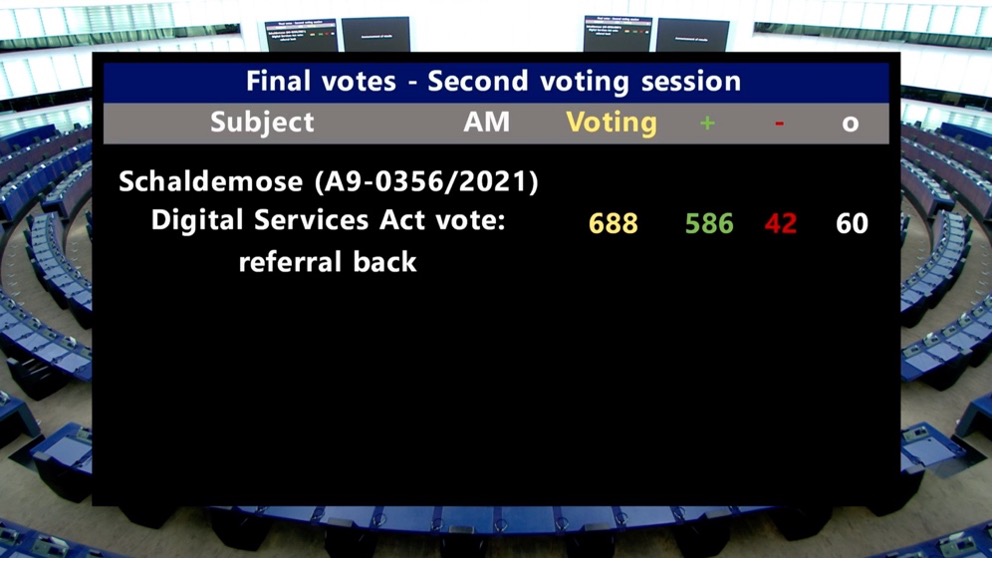On 24th of January the European Parliament voted in its plenary on the Digital Services Act (DSA), which includes requirements for online platforms to ensure accessibility for persons with disabilities. The vote was adopted with a majority of 586 votes, giving green light to open negotiations with member states.

What is the DSA?
The Digital Services Act or the DSA aims to create a safer digital space in which users’ rights are protected, including through rules to tackle illegal products, services or content online, enhance the accountability and transparency of algorithms, and deal with content moderation.
The law includes a wide scope of digital services such as services offering network infrastructure like Internet access providers, domain name registrars, cloud and webhosting services, online platforms bringing together sellers and consumers such as online marketplaces, app stores, collaborative economy platforms and social media platforms. There are specific rules for very large online platforms to safeguard against potential risks related to dissemination of illegal content and societal harms.
The DSA is explained further on the European Commission website.
Parliament ensures accessibility of online platforms for persons with disabilities
We welcome that the European Parliament has considerably strengthened the European Commission’s proposal, and ensured accessibility of online platforms such as online marketplaces, app stores, or collaborative economy platforms and social media platforms used by millions of persons on daily basis. This will of course ensure that millions of consumers with disabilities have equal access to essential services, information, and communication through these services.
Accessibility for persons with disabilities has also been mainstreamed in several provisions of the DSA, such as those related to internal complaint handling systems of online platforms, out of court dispute settling mechanisms, traceability of traders, and measures to ensure accessibility for persons with disabilities by large platforms during public emergencies.
When it comes to accessibility, the main shortcoming of the Parliament’s position is that it has limited accessibility requirements to online platforms used by consumers. By this the Parliament has missed the opportunity to ensure accessibility of webhosting, domain name registries and other digital services and infrastructure that are vital for organisations and businesses in our rapidly digitalising economies. Ensuring accessibility of the wider digital infrastructure within the DSA would enable employment opportunities for persons with disabilities in companies that make use of digital services beyond online platforms.
There are other measures the Parliament has introduced, which will ensure a safer online environment for persons with disabilities, even though they are not disability-specific. Those include clearer rules on removing illegal products and content, more options for tracking-free advertising, right to compensation for damages, mandatory risk assessments and more transparency over algorithms to fight harmful content and disinformation, and more.
What’s next?
Now that the Parliament has its position, it starts negotiations (called trilogues) for the final text with the Council of the EU and the European Commission. According to a draft timeline, most of the negotiations are planned to complete by early April 2022. The final rules could come into force as soon as 2023.
Further Reading
- Press release published by the European Parliament
- EDF article on IMCO committee vote on the DSA
- EDF Position Paper on the Digital Services Act and the Digital Markets Act (Word and PDF)
- Access denied? EU must ensure accessible digital services for persons with disabilities!
- Ensuring rights of persons with disabilities as consumers of digital services and platforms through the Digital Services Act (DSA) – event summary
- MEPs require major digital companies to ensure accessibility for persons with disabilities – IMCO vote on the DMA
Contact
Mher Hakobyan, Accessibility Officer
mher.hakobyan@edf-feph.org